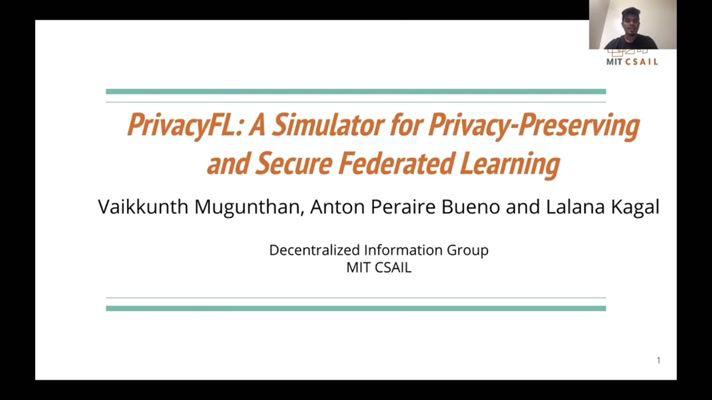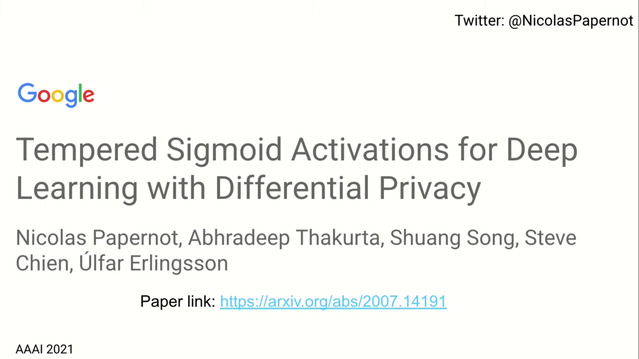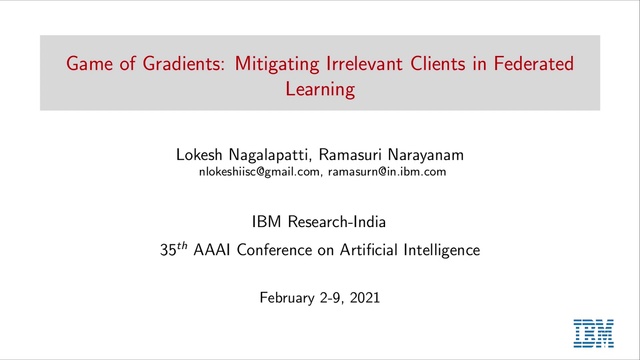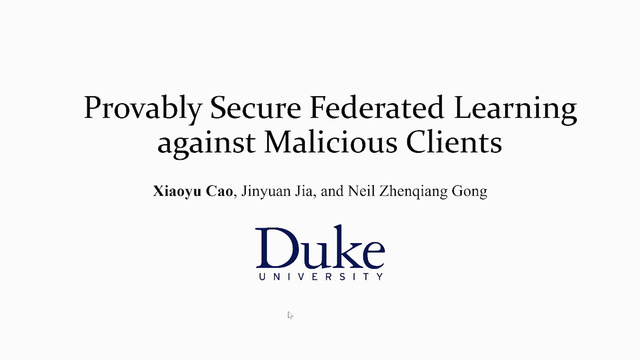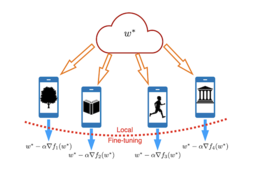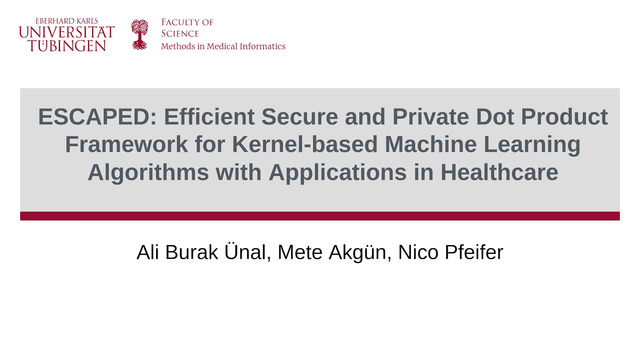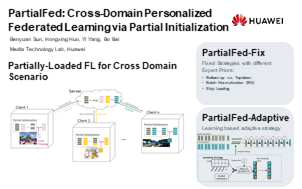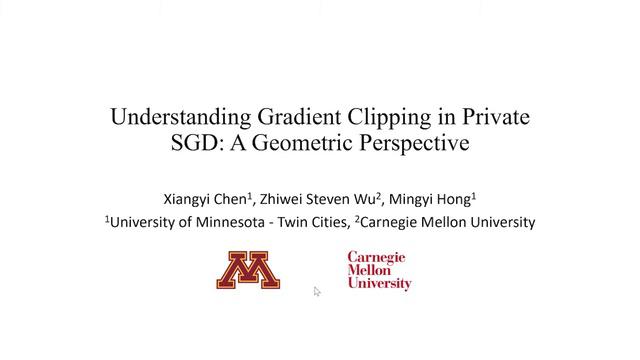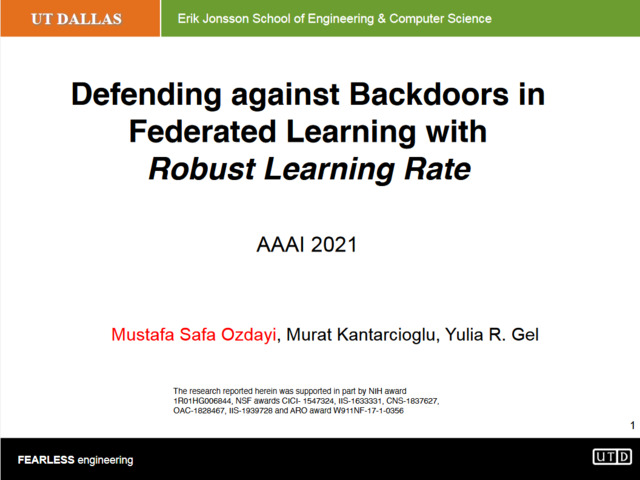Abstract:
Federated learning is a technique that enables distributed clients to collaboratively learn a shared machine learning model without sharing their training data. This reduces data privacy risks, however, privacy concerns still exist since it is possible to leak information about the training dataset from the trained model’s weights or parameters. Therefore, it is important to develop federated learning algorithms that train highly accurate models in a privacy-preserving manner. Setting up a federated learning environment, especially with security and privacy guarantees, is a time-consuming process with numerous configurations and parameters that can be manipulated. In order to help clients ensure that collaboration is feasible and to check that it improves their model accuracy, a real-world simulator for privacy-preserving and secure federated learning is required. In this paper, we introduce PrivacyFL, which is an extensible, easily configurable, and scalable simulator for federated learning environments. Its key features include latency simulation, robustness to client departure/failure, support for both centralized (with one or more servers) and decentralized (serverless) learning, and configurable privacy and security mechanisms based on differential privacy and secure multiparty computation (MPC). In this paper, we motivate our research, describe the architecture of the simulator and associated protocols, and discuss its evaluation in numerous scenarios that highlight its wide range of functionality and its advantages. Our paper addresses a significant real-world problem: checking the feasibility of participating in a federated learning environment under a variety of circumstances. It also has a strong practical impact because organizations such as hospitals, banks, and research institutes, which have large amounts of sensitive data and would like to collaborate, would greatly benefit from having a system that enables them to do so in a privacy-preserving and secure manner.
